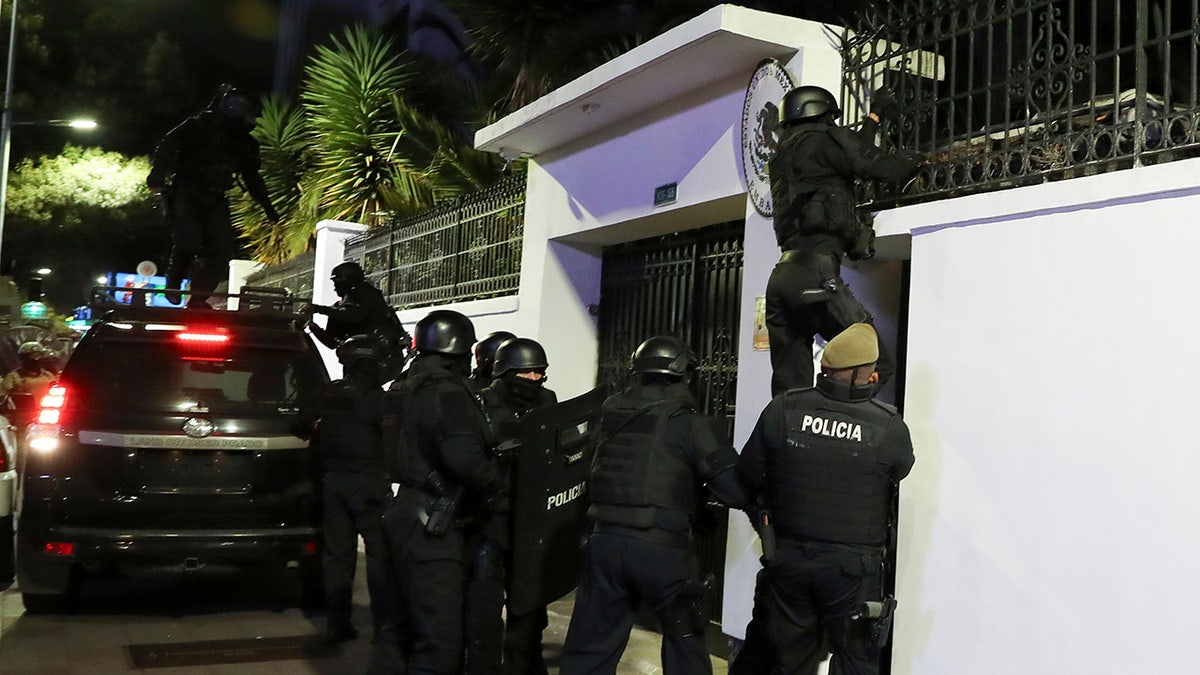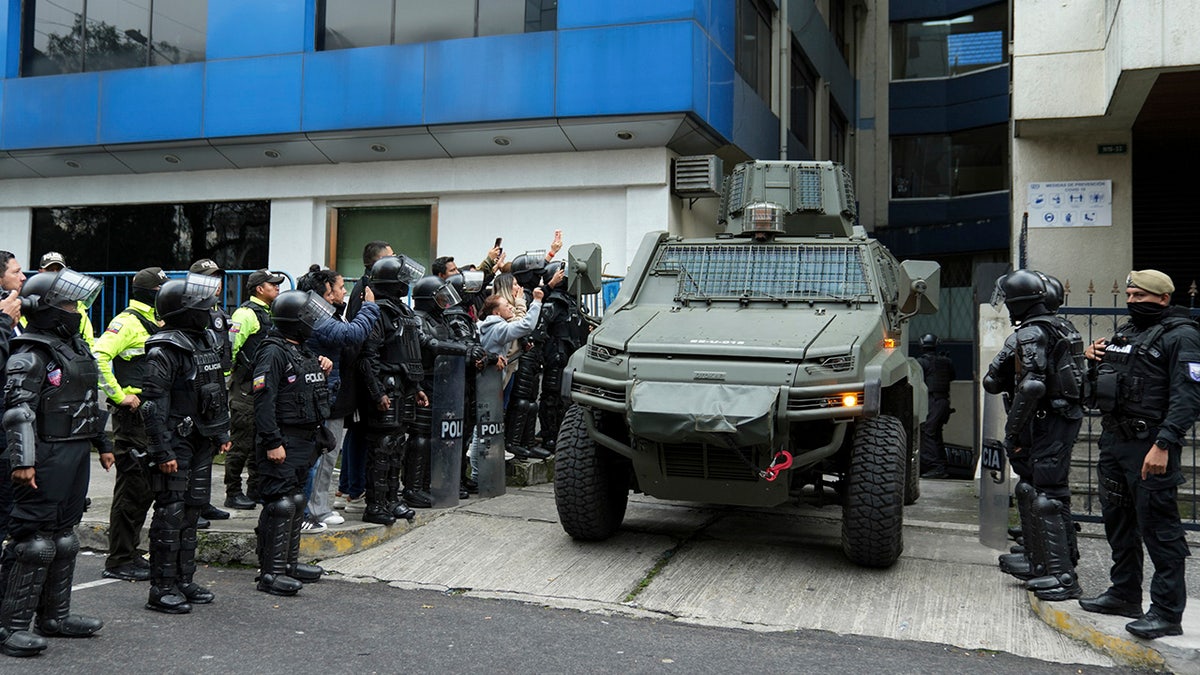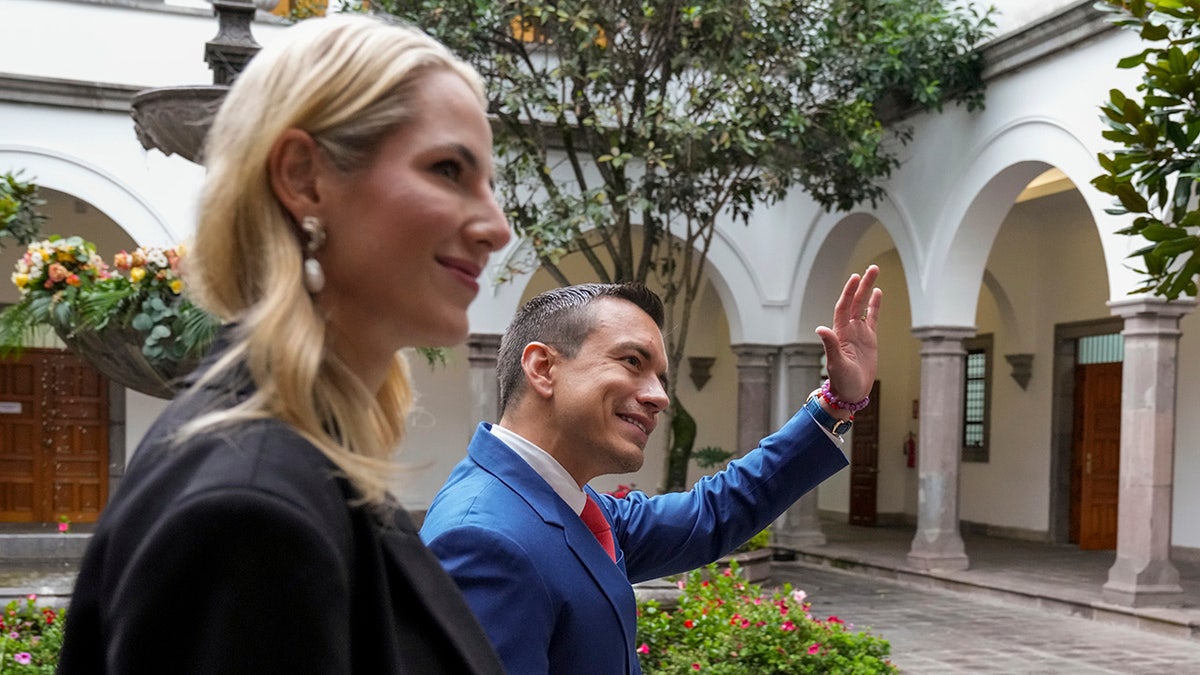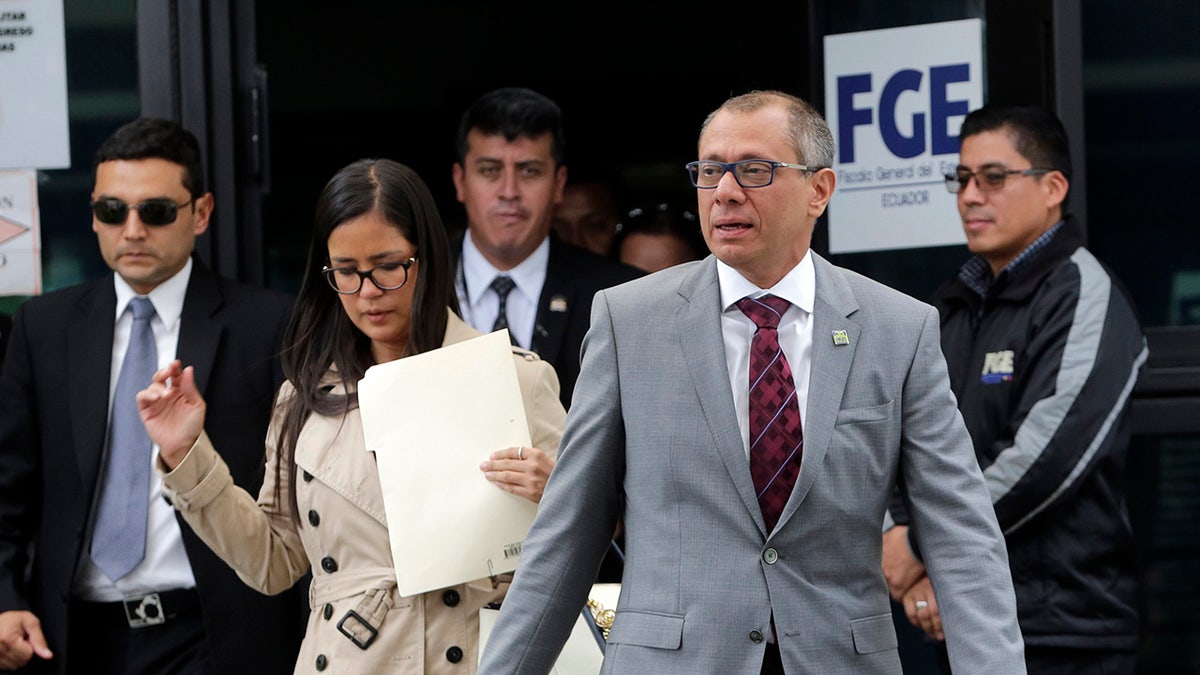Mexico's president says 'the flow of migrants will continue' if Latin America's requests are not met
Mexican President Obrador, nearing the end of his term, warned that the flow of migrants from Latin America into the United State will continue unless billions of aid is sent every year.
Mexican President Andrés Manuel López Obrador on Friday evening announced the severing of diplomatic relations with Ecuador following the arrest of former Ecuadorian Vice President Jorge Glas.
Ecuadorian police late Friday broke through the external doors of the Mexican embassy in the Ecuadorian capital, Quito, to arrest Glas, who had been residing there since December.
Glas sought political asylum at the embassy after being indicted on corruption charges.
"This is not possible. It cannot be. This is crazy," Roberto Canseco, head of the Mexican consular section in Quito, told local press while standing outside the embassy right after the raid, according to The Associated Press. "I am very worried because they could kill him. There is no basis to do this. This is totally outside the norm."

Police break into the Mexican embassy in Quito, Ecuador, Friday, April 5, 2024. (AP Photo/David Bustillos)
Alicia Bárcena, Mexico’s secretary of foreign relations, on Friday posted on the social media platform X that a number of diplomats suffered injuries during the break-in.
Bárcena said Mexico would take the case to the International Court of Justice in The Hague, Netherlands, "to denounce Ecuador’s responsibility for violations of international law." She also recalled Mexican diplomats.
Ecuador's Foreign Minister Gabriela Sommerfeld on Saturday told reporters that the decision to enter the embassy was made by President Daniel Noboa after considering Glas' "imminent flight risk" and exhausting all possibilities for diplomatic dialogue with Mexico. Mexico granted Glas asylum hours before the raid. Sommerfeld said that "it is not legal to grant asylum to people convicted of common crimes and by competent courts."
Authorities are investigating Glas over alleged irregularities during his management of reconstruction efforts following a powerful earthquake in 2016 that killed hundreds of people.
He was convicted of bribery and corruption charges in other cases.
The Organization of American States reminded its members, which include Ecuador and Mexico, of their obligation not to "invoke norms of domestic law to justify non-compliance with their international obligations."

A military vehicle transports former Ecuadorian Vice President Jorge Glas from the detention center where he was held after police broke into the Mexican Embassy to arrest him in Quito, Ecuador, Saturday, April 6, 2024. (AP Photo/Dolores Ochoa)
The Spanish foreign ministry, in a statement Sunday, said, "The entry by force into the Embassy of Mexico in Quito constitutes a violation of the 1961 Vienna Convention on Diplomatic Relations. We call for respect for international law and harmony between Mexico and Ecuador, brotherly countries to Spain and members of the Ibero-American community."
U.S. State Department spokesperson Matthew Miller said, "The United States condemns any violation of the Vienna Convention on Diplomatic Relations, and takes very seriously the obligation of host countries under international law to respect the inviolability of diplomatic missions." He called on both countries to resolve their differences.
DOZENS CHARGED IN INTERNATIONAL DRUG SMUGGLING OPERATION LINKED TO BRUTAL MEXICAN CARTEL

Ecuador President Daniel Noboa arrives with his wife Lavinia Valbonesi to Carondelet presidential palace in Quito, Friday, April 5, 2024. (AP Photo/Dolores Ochoa)
Honduran President Xiomara Castro, writing on X, characterized the raid as "an intolerable act for the international community" and a "violation of the sovereignty of the Mexican State and international law" because "it ignores the historical and fundamental right to asylum."
On Saturday, Glas was taken from the attorney general’s office in Quito to the port city of Guayaquil, where he will remain in custody at a maximum-security prison. People who had gathered outside the prosecutor’s office yelled "strength" as he left with a convoy of police and military vehicles.

Vice President Jorge Glas leaves the Attorney General's Office after making a voluntary statement regarding his alleged connection with two corruption cases in Quito, Ecuador, Aug. 9, 2017. (AP Photo/Dolores Ochoa, File)
Glas' attorney, Sonia Vera, told the AP that officers broke into his room and he resisted when they attempted to put his hands behind his back. She said the officers then "knocked him to the floor, kicked him in the head, in the spine, in the legs, the hands," and when he "couldn’t walk, they dragged him out."
Vera said the defense team was not allowed to speak with Glas while he was at the prosecutor's office, and it is now working to file a habeas corpus petition.
CLICK HERE TO GET THE FOX NEWS APP
Diplomatic premises are considered foreign soil and "inviolable" under the Vienna treaties and host country law enforcement agencies are not allowed to enter without the permission of the ambassador.
People seeking asylum have lived anywhere from days to years at embassies around the world, including at Ecuador's in London, which housed WikiLeaks founder Julian Assange for seven years because British police could not enter to arrest him.
The Associated Press contributed to this report.











































